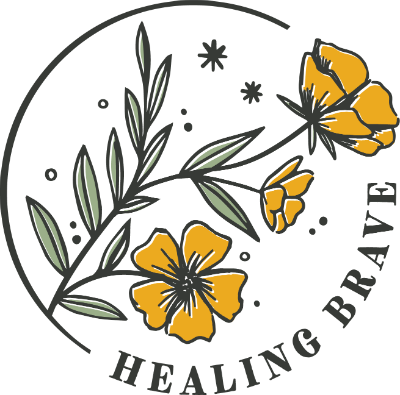How to Keep a Journal + the One Journaling Rule I Follow

A journal is forgiving. You don’t have to be anyone other than who you are (and you don’t have to be an author or a teenage girl) to enjoy the benefits of the process. If you're not sure how to keep a journal that works best for you, here are some ideas. Hint: just be you.
When it comes to journaling, you can’t go wrong. What a relief to have something in life that can’t be wrong…
The One Rule of Journaling
No fancy notebook is needed. The only requirement is that you actually write. It doesn’t even matter what you write, how much you write, why you write, who you’re writing to, how long you write, when you write, where you write, what you write with, how often you write, or if you consider yourself good at writing.
Journaling — what a relief.
Journal in the morning, afternoon, or night. Pick any time you feel most calm, relaxed, focused, anxious, overwhelmed, energized, or confused. Experiment until you find the time of day that works best for you. You don’t even have write at the same time every day (or every day!).
You get the point.
There’s no one right or wrong way to keep a journal. If you want to journal, all that’s really required is that you DO keep it, one way or another.
There’s no proper word count, no perfect method, and no magical length of time that unlocks the benefits of journaling.
“Of course it is happening inside your head, but why on earth should that mean that it is not real?” – Albus Dumbledore
How to Keep a Journal, However You Want to Keep One
1. Start small.
Taking baby steps is a solid piece of advice.
You can start with three days a week, once a week, or twice a month. Set aside five minutes each day to write. Build from that initial starting point.
Don’t give up, just give it your time. Even if that’s five minutes every few days, or a meaningful sentence twice a month, it means you’re giving the habit a chance to stick around.
“Remind yourself that you cannot fail at being yourself.” – Wayne Dyer
2. Have patience.
Writing, especially if it’s not something we’re used to doing, can feel like a burdensome chore. It can also feel alien, uncomfortable, boring, uncool, and confusing.
What should you write about? What if you have nothing to write about? What’s the point if nobody sees it? Are you doing it right?
Writing can be uncomfortable because it reveals what you’re really thinking and feeling. It can be enlightening. You don’t have to “do it right” by anyone’s standards but your own, and your standards might just be that you do it.
Try to be patient with yourself and the process. Don’t worry too much about what you’re supposed to be writing. Getting the words (or drawings) out and onto paper is healing in its own right.
3. Forget about perfection.
The beauty of a journal lies in its privacy, in that even if you want to make it public later, it’s private right now.
You don’t need outside approval; you’re the only one writing in and reading this right now. Grammatical errors have a free pass. Messy handwriting happens. Whatever flows through you that day, however playful or depressing it may be, is what needs to flow.
Your journal is your ultimate judgment-free zone. Your life gets a free pass to be what it is.
4. Be brutally, beautifully honest.
Be real, raw, and candid. There’s nobody to impress between the pages.
We have a tendency to over-analyze thoughts before they come out of us (and appear on paper). One way to circumvent this compulsion is to write quickly. Stream of consciousness style.
You might be surprised by what comes out when you don't put a filter on your thoughts.
Release yourself from the notion that you need to be anything or anyone other than who you are. That release is so relieving, and it’ll probably give you a creative boost. The honest expression you allow to come forth into form just so happens to bring you back home.
5. Hold the space for all of your thoughts.
If you identify negative thoughts or destructive behaviors through journal writing, here's also where you can address them.
You don’t need to add another layer of judgment to them; just observe them and hold the space. If you allow them to move, they’ll move through you.
Try writing in the third person and communicating to the thought. Introduce a positive alternative — a truthful statement, an affirmation of your capacity to move forward, or a reason why this negative thought might not be true or worthy of more attention.
You might even thank the negative thought for its contribution, lesson, or insight. Journal writing has a way of opening your eyes to the things inside of you, things that want to come out.
"Fill your paper with the breathings of your heart." – William Wordsworth
. . .
Tell me:
What do you love most about your journal?
Tell me in the comments. I read every single one, and I’d love to know!
With love,
Jen
P.S. Get to the heart of what you want your life to feel like. Get my book Sleep Rituals for 100 at-home practices that are all about you. And the life you really want. There's plenty of writing exercises in there to help you reflect and release, so you can get some sleep.




Comments on this post (2)
Lucie, thank you so much for commenting and sharing such kind words! It means a lot to me. I love that your journal feels like a safe haven and an outlet… it’s my favorite thing about it. :)
— Jennifer Williamson
I just discovered your blog and I love everything about it, you write so true and so well. And so much courage for pouring your heart out as well. I’m on my own healing journey, and I’ve been writing those 3 morning pages (aka Julia Cameron) since 2014. They’ve helped me so much in my personal and creative development. But right now, what I love the most about my journal is how safe it feels for me to write there. Thank you and keep up the amazing work you do! x
— Lucie